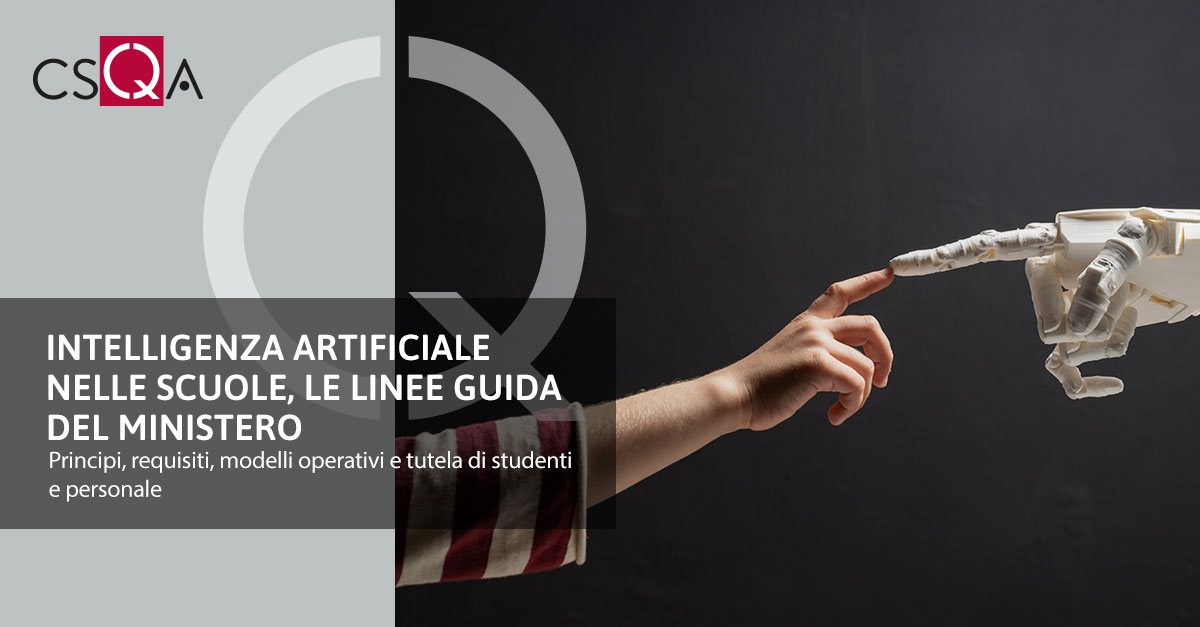 The Ministry of Education and Merit makes available the Guidelines for the introduction of Artificial Intelligence in educational institutions .
The Ministry of Education and Merit makes available the Guidelines for the introduction of Artificial Intelligence in educational institutions .The document provides operational guidelines and guiding principles to support schools in the informed and safe adoption of technologies based on Artificial Intelligence , enhancing their potential to support teaching, digital innovation, and organizational processes.
The adoption of Artificial Intelligence in schools represents a far-reaching transformation, with the aim of improving and innovating not only educational processes but also management and organizational ones.
The Ministry of Education and Merit has defined a regulatory and strategic framework for a conscious introduction, based on fundamental European and national values, and inspired by principles such as the centrality of the person, equity, sustainability, and the protection of fundamental rights.
These principles ensure that the use of AI systems keeps human dignity, non-discrimination, and safety at its core, avoiding practices that could undermine student development or educational inclusion.
Particular attention is paid to high-risk systems , such as those that influence access to or assessment of educational pathways, for which stringent obligations of transparency, control and human oversight are established.
The introduction of AI in schools requires compliance with specific ethical requirements, such as transparency, the explainability of automatic decisions and the elimination of biases or prejudices in the data used .
The human role remains central to the oversight and responsible management of AI systems, with school leaders at the forefront as guarantors of governance and regulatory compliance.
From a technical point of view, AI system providers must guarantee high security standards , with international certifications and personal data protection measures in accordance with the GDPR.
Schools must clearly address students' right to opt out of data processing for system training , while ensuring that this choice does not limit access to learning.
The adoption of privacy by design and privacy by default policies, along with the need for impact assessments, are essential tools for minimizing risks and ensuring safe and responsible use.
Four proposed pillars
The model proposed by the Ministry for the introduction of AI in schools is based on four pillars:- reference principles,
- basic requirements,
- implementation framework,
- communication
- governance.
Practical applications include:
- support for the automation of administrative activities,
- the personalization of teaching and the creation of adaptive educational materials,
- the simplification of internal and external communication,
- optimizing time and resource management.
Risk mitigation strategies, ongoing staff training, and transparent communication are essential to ensure the effective and safe use of AI in schools. (Source: https://www.orizzontescuola.it/ )